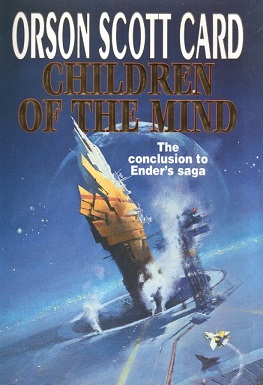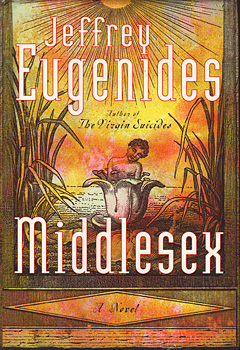I am making slow, but steady progress in my recovery. The tonsillectomy has by far been the most difficult to recover from, but I am now just at something like a bad sore throat. My fever continues to fluctuate, and I still require quite a bit of water, but I can eat anything I want. I had some small delays in starting the new book, "1984," due to illness and travelling (I haven't actually read or listened to any books so far during my recovery because I have just been zoning out so badly.), but I am starting today and should keep up a fair pace of it.
In starting reading, I find it interesting to note that George Orwell's novel was written around the same time that Ayn Rand was herself writing. Their themes are similar, a totally overreaching government system that seeks to control every aspect of civilisation and culture. The difference is that Ayn Rand, having grown up during the communist revolution put it as the enemy of freedom, whereas George Orwell, writing from a western perspective has imagined that such oppression would likely come by way of a totalitarian dictatorship. We see by their parallel works how similar both of these philosophies can be.
Now, let us read on and enlighten our minds.
Tuesday, August 12, 2008
Thursday, August 7, 2008
Rotting Flesh and Intense Pain
I am pleased to announce that the Red Raccoon Book Club will next be reading "1984," by George Orwell (aka Eric Arthur Blair), published 1949. You are all welcome to join in.  This was a particular request of Kevin, for whom it will hopefully be a distraction from life at sea. So, everybody, join in!
This was a particular request of Kevin, for whom it will hopefully be a distraction from life at sea. So, everybody, join in!
I have also just gotten "Fountainhead" from the library, so that will be coming up shortly as well.
 This was a particular request of Kevin, for whom it will hopefully be a distraction from life at sea. So, everybody, join in!
This was a particular request of Kevin, for whom it will hopefully be a distraction from life at sea. So, everybody, join in!I have also just gotten "Fountainhead" from the library, so that will be coming up shortly as well.
Friday, August 1, 2008
Update...and Some Notes
 Well, I am pleased to see that our little book club is starting to get some recognition form outsiders. I hope this will continue and allow for much lively discussion of relevant topics. I did finish reading "Anthem," by Ayn Rand. This one was on cassette, and I was pleased to hear the correct Russian pronunciation of her name. The more I learn about her background, the more interesting her novels become because of the historical/cultural context in which they are placed. I would very much like to get my hands on her book "We the Living." However, I can't seem to find it on CD at my library. This is currently my preferred media.
Well, I am pleased to see that our little book club is starting to get some recognition form outsiders. I hope this will continue and allow for much lively discussion of relevant topics. I did finish reading "Anthem," by Ayn Rand. This one was on cassette, and I was pleased to hear the correct Russian pronunciation of her name. The more I learn about her background, the more interesting her novels become because of the historical/cultural context in which they are placed. I would very much like to get my hands on her book "We the Living." However, I can't seem to find it on CD at my library. This is currently my preferred media. Back to "Anthem," though. I also really enjoyed this book. Is is quite short and is meant to be in the fantasy genre. She actually wrote it as a break from "Fountainhead." It is a fun little illustration about the corrupt nature of imposed socialism/communism. Also, as the name implies, it is an Anthem to the Ego, the individual soul of man, the unconquerable spirit of great men of all ages.
Back to "Anthem," though. I also really enjoyed this book. Is is quite short and is meant to be in the fantasy genre. She actually wrote it as a break from "Fountainhead." It is a fun little illustration about the corrupt nature of imposed socialism/communism. Also, as the name implies, it is an Anthem to the Ego, the individual soul of man, the unconquerable spirit of great men of all ages.The great point of Ayn Rand's novels, as I see it, is to illustrate how seeking their self interest, men of great capacity will lift up all others around them. Also, that the proper place of government is only to punish behavior that threatens the physical safety of its citizens.
 It is an interesting and important fact of history that the Great American form of Government is set up in such a way as to prevent the speedy alteration of laws. Men are required to engage in lengthy debates, compromising and convincing their peers of the merits of their point of view. Our government is set up to check the proud man who thinks he knows best for all.
It is an interesting and important fact of history that the Great American form of Government is set up in such a way as to prevent the speedy alteration of laws. Men are required to engage in lengthy debates, compromising and convincing their peers of the merits of their point of view. Our government is set up to check the proud man who thinks he knows best for all.It is wonderful when a great man works for the benefit of those less capable. It is even more wonderful when that lesser man shows gratitude for the benefit he has received. However, if a government forces a man to work for the benefit of another the great man is suddenly punished for his capability, and the lesser man rewarded for his baseness. He is told that he is entitled to what he cannot produce himself and this removes the gratitude he ought to have felt. Instead, if any gratitude is expressed, it is to the government who wrongfully stole one man's goods for the benefit of another.
We must never feel entitled to anything if we are to be happy, for it is gratitude and achievement that brings happiness. Entitlement only brings sorrow, for we will always desire more and work for it less.
If great men are left free to work for their own benefit, they will always require the assistance of other men to reach their greatest ambitions. If these men are also allowed to be free to receive form their employers what they are worth then all will work to the best of their abilities and everyone will benefit. The greatest motivator in the world is for a man to be justly compensated for a job he enjoys doing. It is when we seek to withhold just compensation where it is due that we cease to be our brother's keeper. We must be wary of government programs that would force one man to work for the benefit of others and not for himself, because that will only breed laziness and resentment. Laziness on the part of the unjust recipient, and resentment on the part of the uncompensated producer. Such a system will never inspire hard work and growth.
It would seem to be clear from her novels that Ayn Rand is not a religious person. I would not state this as a fact, but I would like to respond to it with my own perspective on theology. Some may say that God is the greatest socialist there is, because He labors for all of us with no reward. What reward can be granted One who possesses all? To those of this opinion I would quote a simple scripture to which I often like to refer myself. It comes from the first chapter of the Book of Moses contained in "The Pearl of Great Price," as revealed in vision to the latter-day prophet Joseph Smith Jr. It reads thus:
"For behold, this is My work and My glory, to bring to pass the immortality and eternal life of man."
From this simple line it is elementary to see that the reward God gains for his labors is an increase in glory. There is no altruism here. I would submit that this is the reward gained by all parents who truly work for the benefit of their children. They gain their children's' gratitude and respect.
 Well, let me get away from opinion for a bit and continue with the promised update. I am still working my way through the book on General Washington.
Well, let me get away from opinion for a bit and continue with the promised update. I am still working my way through the book on General Washington.I also read Bernard Cornwell's novel "The Last Kingdom." First in the series of which "Sword Song" is the fourth.
I have already read "Sword Song" and it is my great pleasure to make my way through the preceding three novels. I currently have "The Pale Horseman" and "Lords of the North" waiting on my shelf.
I really enjoy these books, but would not recommend them to squeamish women or children as they are about a true warrior. Lord Uhtred fights for good, but also for love of battle. Those men out there who miss the significance of the sword as a symbol of manhood will, I think, enjoy this series.
 I also have on my shelf the recently obtained finale to Orson Scott Card's Ender Wiggin saga: "Children of the Mind." I am quite anxious to finish it off. The previous novel, "Xenocide," really broke of without satisfactory conclusion.
I also have on my shelf the recently obtained finale to Orson Scott Card's Ender Wiggin saga: "Children of the Mind." I am quite anxious to finish it off. The previous novel, "Xenocide," really broke of without satisfactory conclusion.
I totally forgot to mention another novel I recently finished by Jeffrey Eugenides entitled "Middlesex." This refers to a geographic location within the book, but also alludes to the fact that the novel is the story of a hermaphrodite. It is a very funny novel, and very well written spanning several generations of a Greek household ending in the story of Calliope (girl's name) later changed to Cal (boy's name), who is male, but due to a genetic defect resulting in female exterior sex organs, is raised as a girl until the onset of puberty causes all sorts of problems.
Some of you may find this believable autobiographical type novel amusing, however those sensitive to sexual issues may want to leave it alone. I believe this book was enjoyed equally as well by my lovely and talented wife.
Other books awaiting my reading:
"1984" by George Orwell
"Predator" by Patricia Cornwell
Subscribe to:
Comments (Atom)


